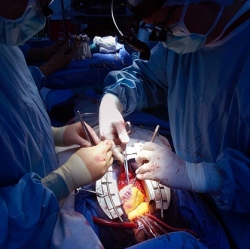
New research suggests that there is a third state of consciousness, termed ‘dysanaesthesia’, which can present complex challenges for doctors during surgery.
The problem of awareness, wherein a patient consciously experiences and remembers things that happen during their surgery, is becoming a major concern for patients needing surgery.
Data from studies worldwide show that, if asked directly, 1 in 500 patients can distinctly recall their surgery. However, further data suggests that only 1 in 15,000 patients will report awareness when they are not prompted.
A third of these patients reported pain or distress as part of the experience. Therefore, many worry that, despite medical advancements, modern anaesthesia is still plagued with problems.
President Elect Dr Andrew Hartle, of the The Association of Anaesthetists of Great Britain and Ireland said “patient safety and research are two of the AAGBI’s major priorities.”
However, Professor Jaideep Pandit, Consultant Anaesthetist & Fellow of St John’s College, Oxford, was not concerned. “Even in 2013, we are still struggling to define what consciousness actually is,” he said.
“We can obviously see when someone is awake and responding, and when someone is asleep or unconscious, but our understanding of what changes us from one state to the other is still evolving.”
As part of a national project into dysanaesthesia, Dr Pandit and his team have tried to study patient safety during periods of awareness.
By anaesthetising patients with neuromuscular blocking drugs, which allow them to move their fingers in response to commands, Dr Pandit and his team hope that patients will be able to alert doctors if they are awake or in pain during surgery.
